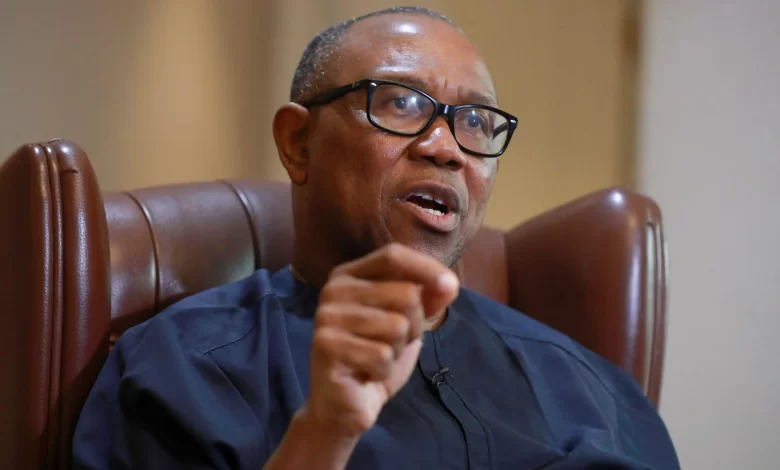2025: Tinubu govt not sincere on state of nation –Obi
The presidential candidate of the Labour Party (LP) in the 2023 elections Peter Obi, has said that Nigeria’s political, economic and security situation is worsening daily, contrary to the positions and claims by the present government. Obi said at a media chat on Thursday in Abuja that Nigeria needed selfless and exemplary leadership in 2025. […]

peter obi
The presidential candidate of the Labour Party (LP) in the 2023 elections Peter Obi, has said that Nigeria’s political, economic and security situation is worsening daily, contrary to the positions and claims by the present government.
Obi said at a media chat on Thursday in Abuja that Nigeria needed selfless and exemplary leadership in 2025.
“As we begin the New Year 2025, it has become imperative for me to speak to you as a Nigerian interested in the progress of the country. The political, economic and security situation of our country is worsening daily, despite contrary positions and claims by the government of improvement in different spheres of human endeavour.
“Our national challenges are visibly worsening. Our nation and its fortunes are in clear reverse. The indices are clearly indicative of our decline: our national indices tell a disconcerting story. Nigeria remains one of the poverty capitals of the world, with over 100 million people living in extreme poverty and more than 150 million in multidimensional poverty,” Obi said.
He said that the situation has deteriorated significantly over the past 18 months under the current administration.
According to the former Anambra State Governor, as a nation, Nigeria has fallen from being the largest economy in Africa, with a GDP of $574bn and a per capita income of over $3,500 in 2014, to now ranking fourth on the continent.
“Our current GDP is less than 50% of what it was a decade ago, standing at approximately $200bn, with a per capita income of barely $1,000. Nigeria remains one of the most insecure and least peaceful nations in the world, with countless communities and families displaced from their homes and now living in IDP camps.
“According to the Global Peace Index (GPI), Nigeria ranks 143rd out of 163 countries in terms of peacefulness – an indication of a high level of distress,” he said.
Obi noted that food insecurity has become the new national norm, making Nigeria one of the hungriest countries in the world.
He also said that gainfully employed and middle-income Nigerians now spend nearly their entire incomes on feeding, with some even resorting to borrowing just to eat.
“For those living on the margins—low-income earners and the unemployed—the situation is even more dire. The newly approved minimum wage of N70,000 cannot afford a bag of rice or even half a bag of beans. As a result, many Nigerians go to bed hungry, while a significant number now rely on palliatives and charitable support.
“Tragically, this has recently led to several avoidable deaths. Nigeria’s ranking on the 2024 Global Hunger Index is 110th out of 127 countries, reflecting a critical level of hunger and food insecurity in the nation,” Obi said.
He lamented that Nigeria had earned the dubious distinction of being one of the countries with the largest number of people without access to electricity.
He said that in 2024, despite abysmal and unacceptable power generation and distribution, the frequency of national grid collapse increased significantly, with the grid failing 12 times in 12 months.
He said, “As a result, we are now mockingly referred to as the ‘generator country’. This persistent lack of adequate energy supply continues to hinder our national development.”
He noted that corruption, official malfeasance, fiscal profligacy, and the mismanagement of public resources continued to rise astronomically in the country, spreading across all spheres of government.
He also accused the present administration of nepotism and the disregard for the constitution, the rule of law, and due process have which has become the norm in the country.
He said that the national debt had risen astronomically, from approximately N15trn in 2015 to N100trn today.
“This sharp increase has occurred within the past 18 months under the current administration. Ironically, these borrowings are largely allocated to non-regenerative programmes and projects, leaving little to no tangible developmental assets to show for the debt,” Obi said.
He said that inflation remained at an all-time high, with businesses collapsing, and manufacturing companies barely surviving, further contributing to the already high unemployment rate.
“We hold periodic elections that are no longer genuine. Our electoral processes are visibly flawed, lacking transparency and credibility. Although Nigeria is a democratic country, the electoral processes fall far below acceptable standards, with the people’s votes often not counting,” Obi said.
